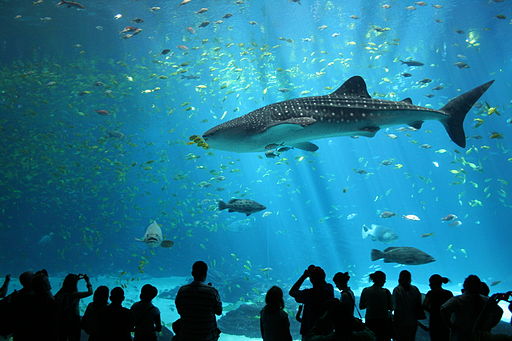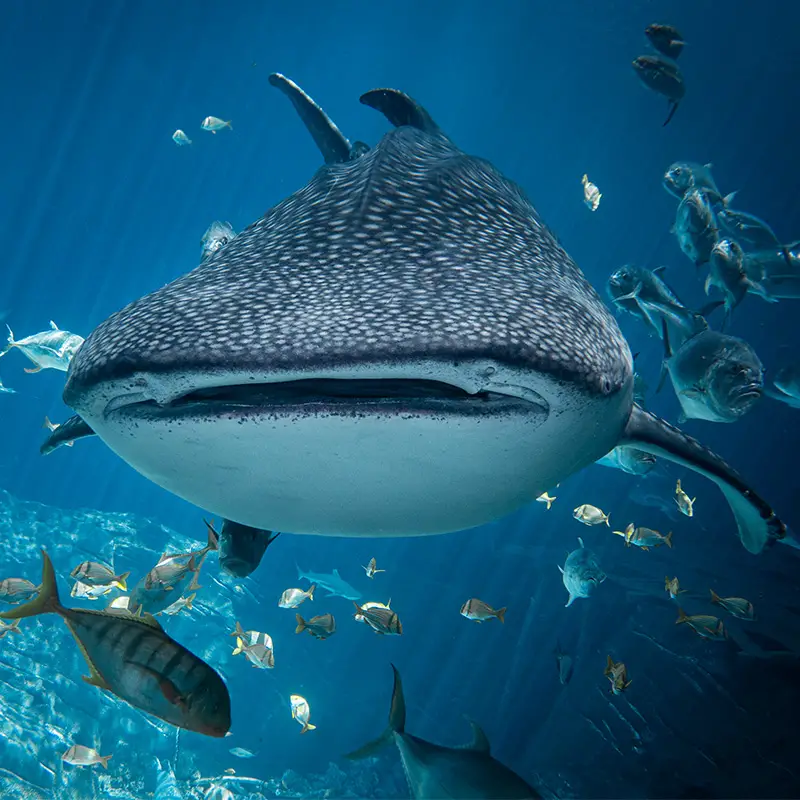Aquariums are some of the most fascinating places to visit, where you can see creatures of the deep up close and personal. But have you ever wondered if any aquariums have whales? These majestic mammals are some of the largest creatures on earth, and seeing them in a tank seems almost impossible. However, there are some aquariums around the world that have attempted to house whales, with varying degrees of success.
While many aquariums have large tanks that can accommodate a variety of marine life, whales are a different story altogether. These creatures need vast amounts of space to swim and dive, and most aquariums simply don’t have the resources to provide this. However, there have been a few cases where aquariums have tried to house whales, with mixed results. So, do any aquariums have whales? Let’s take a closer look at this intriguing topic.
No, aquariums do not keep whales because they are too large and complex to be adequately cared for in captivity. Whales require vast oceanic environments to thrive, and keeping them in tanks would be inhumane. Many aquariums have marine mammals like dolphins, sea lions, and seals, but not whales.

Do Any Aquariums Have Whales?
Aquariums are a popular attraction for people of all ages. They provide a unique opportunity for individuals to witness aquatic life up close and personal. One of the most awe-inspiring creatures in the ocean is the whale. Many people wonder if aquariums have whales, and if so, how these magnificent creatures are cared for. In this article, we will explore whether any aquariums have whales, and if so, what kind of care they receive.
Marine Mammals in Captivity
Marine mammals are an important part of many aquariums. These creatures include dolphins, seals, and sea lions. However, whales are a different story. While some marine parks may have smaller whales, such as beluga or pilot whales, no aquariums have any of the larger whale species, such as humpback, orcas, or blue whales.
One of the reasons for this is that whales require a vast amount of space to thrive. These creatures can swim up to 100 miles a day in the wild, and no aquarium can provide the space needed to replicate their natural habitat. Additionally, whales are highly social creatures that live in pods and require social interaction to remain healthy. Captivity can cause stress and harm to these creatures, which is why they are not found in aquariums.
The Debate Surrounding Captive Whales
The debate surrounding the captivity of whales is a controversial one. Proponents of keeping whales in captivity argue that it provides an opportunity for people to learn about these creatures and helps to fund research and conservation efforts. They also claim that whales in captivity receive top-notch care and are treated like royalty.
However, opponents argue that captivity is harmful to these creatures. They state that whales are highly intelligent and emotional beings that suffer from stress and boredom in captivity. They also claim that the conditions in captivity are inadequate and that whales often experience health issues and a shortened lifespan.
Benefits of Observing Whales in Their Natural Habitat
While aquariums may not have whales, there are still ways to observe these magnificent creatures in their natural habitat. Whale-watching tours are a popular activity in many coastal areas. These tours allow individuals to witness whales in their natural habitat, where they can observe their behavior and interactions with other creatures.
Observing whales in their natural habitat is a unique experience that can help individuals gain a greater appreciation for these creatures. It also provides an opportunity to learn about the importance of conservation efforts and the need to protect these creatures and their habitats.
Conclusion
While aquariums are a great place to observe a variety of aquatic life, they do not have whales. The space and social requirements needed to care for these creatures are simply too great for any aquarium to replicate. While some marine parks may have smaller whale species, the debate surrounding the captivity of these creatures is a controversial one. It is important to continue to learn about and appreciate whales while also working to protect their natural habitats.
Frequently Asked Questions
Do any aquariums have whales?
Yes, there are aquariums that have whales. However, it is important to note that not all species of whales can be kept in captivity. Generally, smaller species of whales such as belugas and orcas are the ones that are kept in aquariums. Larger species such as blue whales or humpback whales are too big and require a lot of space to swim.
Aquariums with whales usually have a large tank or pool where the whales can swim and play. These tanks are designed to mimic the natural environment of the whales as much as possible. This includes providing them with enough space to swim and dive, as well as providing them with a diet that is similar to what they would eat in the wild.
How do aquariums acquire whales?
Aquariums acquire whales through a process called “collection”. This involves capturing the whales from the wild and transporting them to the aquarium. This process is controversial and there is a lot of debate about whether it is ethical to keep whales in captivity.
Some aquariums also obtain whales through breeding programs. These programs involve keeping a male and female whale together in an aquarium and allowing them to mate. The offspring of these whales are then raised in captivity.
What are the benefits of having whales in aquariums?
The main benefit of having whales in aquariums is that it allows people to see these magnificent creatures up close. This can help to raise awareness about the importance of protecting whales and their natural habitats.
Aquariums with whales also conduct research on these animals, which can help to increase our understanding of their behavior and biology. This research can then be used to inform conservation efforts in the wild.
What are the drawbacks of keeping whales in aquariums?
One of the biggest drawbacks of keeping whales in aquariums is that it can be very stressful for the animals. Whales are used to swimming long distances in the open ocean, and being confined to a small tank can be detrimental to their health and well-being.
There is also a lot of controversy surrounding the capture and transport of whales from the wild. Many people believe that this is cruel and unethical, and that whales should be left in their natural habitats.
What is being done to improve the welfare of whales in aquariums?
There are a number of initiatives underway to improve the welfare of whales in aquariums. Some aquariums have begun to phase out their whale programs, while others are focusing on creating larger and more naturalistic habitats for their whales.
There is also a push to move away from capturing whales from the wild, and instead focus on breeding programs and rescuing injured or stranded animals. Additionally, there are efforts to improve public education about the welfare of whales in aquariums and the importance of protecting them in the wild.

Acclimating Beluga Whales Into Georgia Aquarium | The Aquarium
In conclusion, it is important to note that aquariums do not typically house whales. Whales are large, complex animals that require extensive space and specific environmental conditions to thrive. While some aquariums may have dolphin or porpoise exhibits, these animals are much smaller than whales and are better suited to living in captivity. Additionally, the ethical concerns surrounding the captivity of marine mammals continue to be a hot topic, leading many aquariums to shift their focus towards conservation and education efforts instead.
Although there may be some aquariums that claim to have whale exhibits, it is important to critically evaluate the conditions in which these animals are kept. The welfare and health of captive whales should always be the top priority, and any aquarium that is truly dedicated to conservation and education will prioritize these concerns over profit and entertainment.
In the end, it is clear that the best place to observe whales is in their natural habitat. Whale watching tours and other eco-tourism activities can provide unforgettable experiences while also supporting conservation efforts. By appreciating these magnificent creatures in the wild, we can better understand and appreciate the importance of preserving their natural environments for future generations.
